Looking Up, 16-page English PDF Edition, Back Issues and Current Issue

|
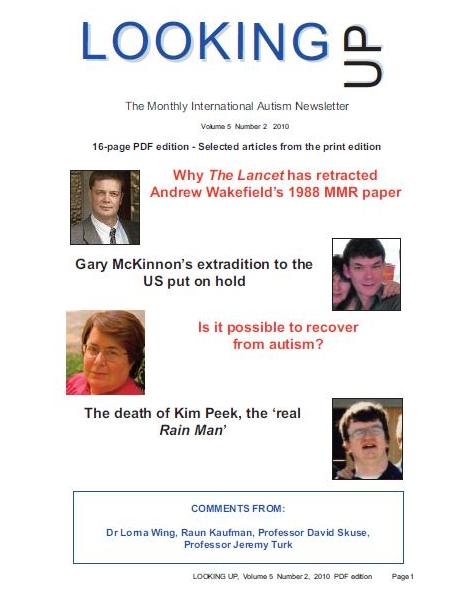
|
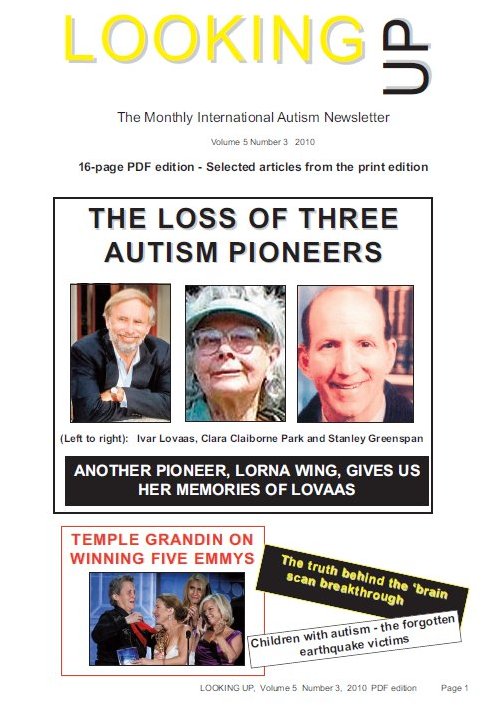
|
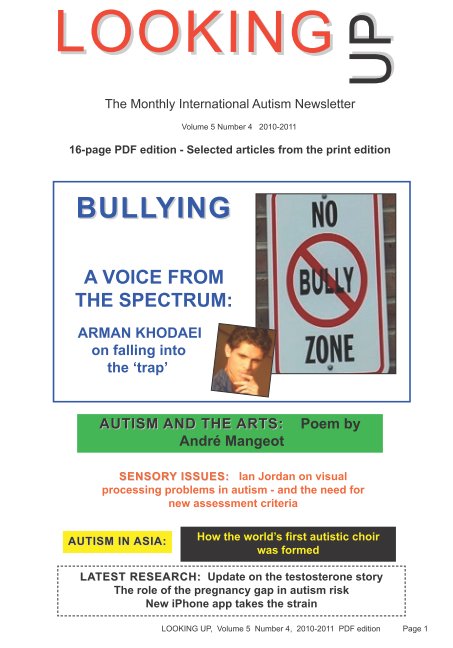
|
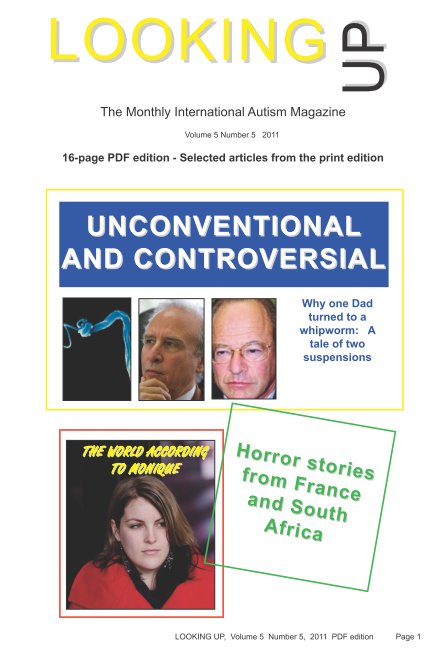
|
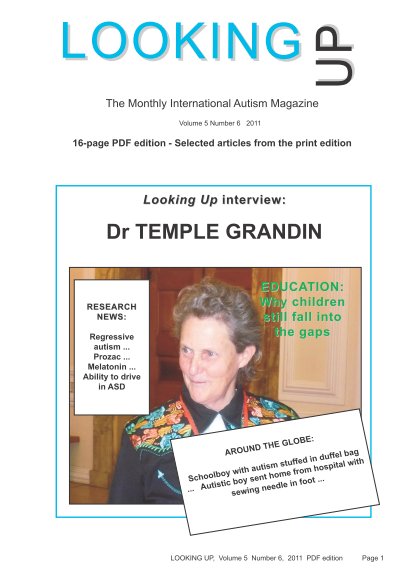
|
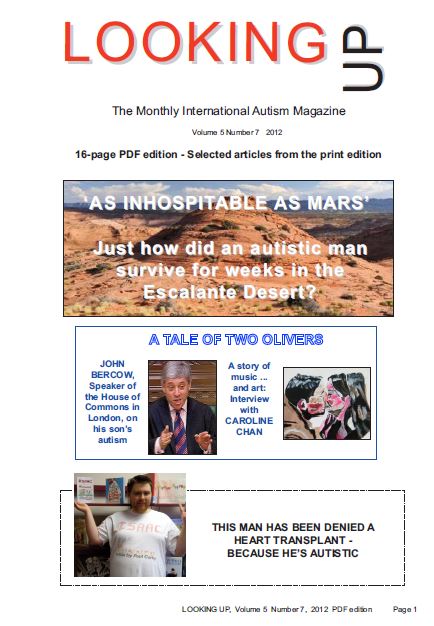
|
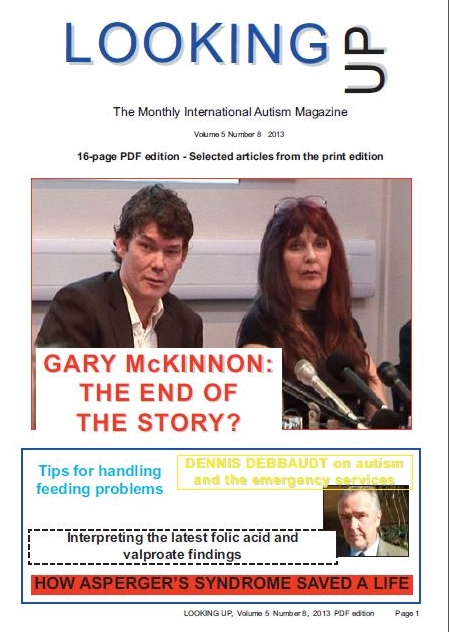
|
| Home page | Subscribe (print edition) | Selected articles | Our publications | Our mailing lists |
| PDF edition | Subscribe (PDF edition) | Back issue contents | Autism books | Contact us |
From Volume 5 Number 6 (Print and PDF editions)
PHILADELPHIA, USA: In the first study to investigate driving as it relates to teenagers with a high-functioning autism disorder (HFASD), child development and teen driving experts at The Children’s Hospital of Philadelphia’s Center for Child Injury Prevention Studies found that two-thirds of teenagers with an HFASD who are of legal driving age in their state are currently driving or plan to drive.
The study is published in the January 2012 edition of the Journal of Developmental and Behavioral Pediatrics.
An HFASD is characterised by subtle impairments in social interaction, communication, motor skills and co-ordination and by a difficulty in regulating emotions. Many of these capabilities come into play when driving.
“Little is known about how HFASDs affect a person’s ability to drive safely,” explained lead author Dr Patty Huang, a developmental paediatrician at The Children’s Hospital of Philadelphia (CHOP). “Over the past decade, the rate of children diagnosed with an HFASD has increased, meaning that more of those kids are now approaching driving age. Car crashes are the number one cause of death for teenagers, so it is important that we understand how HFASDs impact driving and how to develop appropriate educational and evaluation tools.”
In a first step better to understand the issue, researchers surveyed almost 300 parents of teenagers with HFASDs and discovered a few predictive characteristics among those teenagers who are likely to become drivers, including:
• At least 17 years old
• Enrolment in full-time regular education
• Planning to attend college
• Having held a paid job outside the home
• Having a parent who has taught another teenager to drive
• Inclusion of driving-related goals in his or her individualised education plan (IEP)
“It’s very common for parents of kids with HFASDs to ask how they should handle learning to drive. Knowing these characteristics can help us prepare anticipatory guidance for families,” said Dr Huang.
“In Pennsylvania, it’s the law for teens to have a doctor’s sign-off before they can get a learner’s permit and that makes it easier to address driving-specific concerns. In states that don’t have those laws, it’s an issue that physicians should be prepared to address with their patients and their parents.”
When determining whether a teenager with an HFASD is ready to begin driving, researchers say it might be helpful to make an appointment with a specialist, such as an occupational therapist or driving instructor, who may be able to offer guidance on how to break driving lessons down into steps that are easier for teenagers with an HFASD to digest and put into practice.
“We hope this study will lay the groundwork for future research into improving the ability to assess readiness to drive among teens with autism spectrum,” said Dr Huang.
More information about helping teenagers with special needs prepare to drive is available at: teendriversource.org

|

|

|

|

|

|

|

|
| Current 40-page print edition issue | |||||||||||||||
|---|---|---|---|---|---|---|---|---|---|---|---|---|---|---|---|
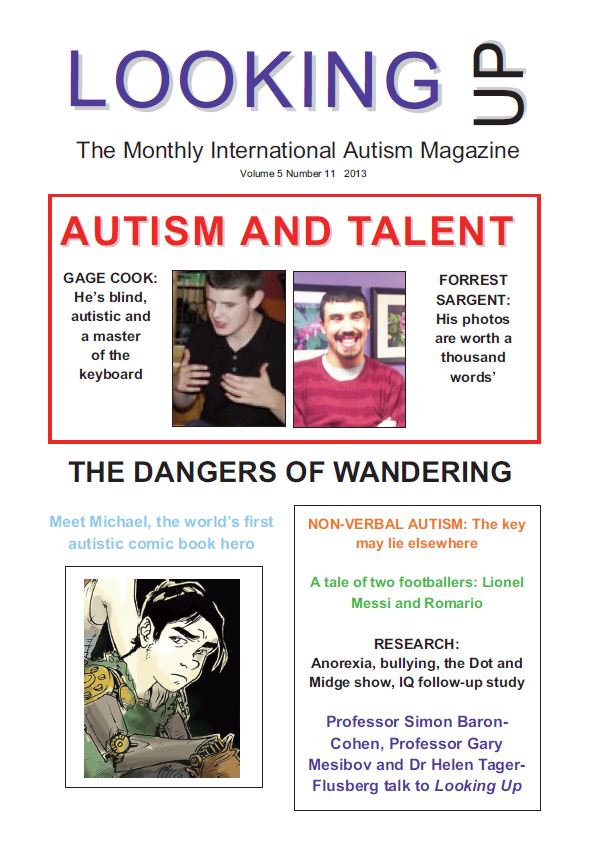
|
| ||||||||||||||
| PRINT EDITION BACK ISSUE CONTENTS AND FRONT COVERS | ||||||||||||||||||||||||||
|---|---|---|---|---|---|---|---|---|---|---|---|---|---|---|---|---|---|---|---|---|---|---|---|---|---|---|
| VOLUME 1, Number: | 1 | 2 | 3 | 4 | 5 | 6 | 7 | 8 | 9 | 10 | 11 | 12 | VOLUME 2, Number: | 1 | 2 | 3 | 4 | 5 | 6 | 7 | 8 | 9 | 10 | 11 | 12 | |
| VOLUME 3, Number: | 1 | 2 | 3 | 4 | 5 | 6 | 7 | 8 | 9 | 10 | 11 | 12 | VOLUME 4, Number: | 1 | 2 | 3 | 4 | 5 | 6 | 7 | 8 | 9 | 10 | 11 | 12 | |
| VOLUME 5, Number: | 1 | 2 | 3 | 4 | 5 | 6 | 7 | 8 | ||||||||||||||||||
| You can find our PDF EDITION CONTENTS AND COVERS on our PDF EDITION BACK ISSUES PAGE | ||||||||||||||||||||||||||
| Home page | Subscribe (print edition) | Selected articles | Our publications | Our mailing lists |
| PDF edition | Subscribe (PDF edition) | Back issue contents | Autism books | Contact us |